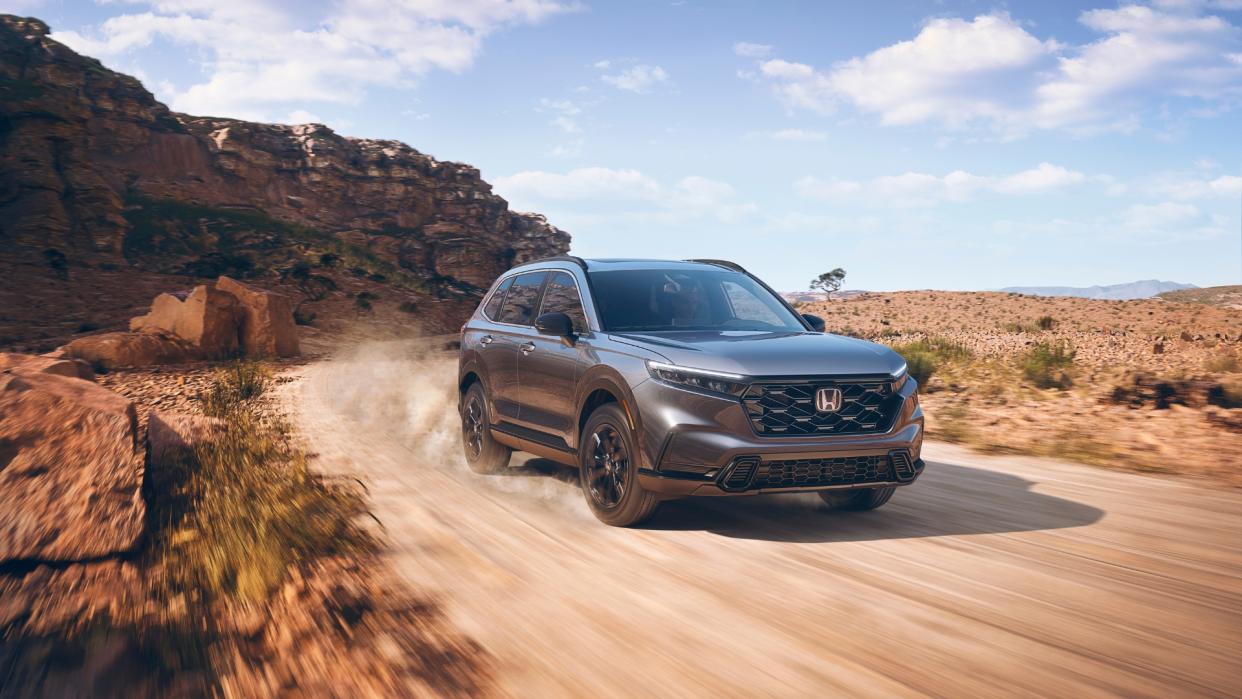7 Key Signs Hybrid Cars Aren’t the Right Purchase for You

As the overall trajectory of the automotive market continues to lean electric, new EV companies have sprung up around the world and traditional carmakers are retooling their lineups. Despite production and demand challenges, 1.2 million EVs were sold in the U.S. in 2023, according to Kelley Blue Book (via Cox Automotive).
Check Out: 6 Best New Cars for the Upper Middle Class
Read Next: 6 Genius Things All Wealthy People Do With Their Money
However, the pace at which EV sales are growing has fallen short of industry expectations. Americans seem to remain cautious regarding high prices, limited battery ranges and insufficient charging infrastructure when it comes to electric vehicles. As a result, hybrid sales soared to more than 1.2 million units in 2023 and have quickly become the preferred choice for many buyers.
Hybrid cars offer numerous benefits to drivers — including reduced emissions, savings at the pump, savings on regular maintenance and through tax credits and incentives, unmatched fuel economy and resale value. Hybrids (but not plug-in hybrids [PHEVs]) are also becoming more reliable. Consumer Reports’ 2023 Annual Auto Reliability Survey found hybrids 26% more reliable than Internal Combustion Engine (ICE) vehicles.
However, depending on an individual’s needs, driving habits and priorities, size, features or budget, hybrids might not be the right choice for everyone. Here are seven signs that a hybrid car might not be the best purchase for you.
1. Higher Purchase Price
Generally speaking, hybrids tend to cost more than comparable gas-powered vehicles (but less than EVs). So, if you’re on a tight budget or prioritize upfront affordability, a hybrid might not be the best choice for you. Although hybrid owners justify the higher purchase cost of their vehicle by saying that they’ll make that up eventually with fuel savings, HowStuffWorks stated that doing so might take longer than buyers think.
Learn More: These 12 Cars Can Save You Thousands of Dollars in Repair and Maintenance Costs
2. Fossil Fuel Dependence
Many drivers who choose to buy an eco-friendly fully electric car want to lessen their impact on the environment. With a hybrid, you are still partially dependent on fossil fuels. Additionally, hybrids still have some environmental impact during the manufacturing process and battery disposal.
3. Power and Performance
Although automakers are expanding performance capabilities throughout their lineups all the time, hybrids are manufactured to improve fuel efficiency and lower carbon emissions and thus generally have slower top-end acceleration than traditional models. If power and handling are must-haves, you might be disappointed at your hybrid options.
4. Higher Maintenance Costs
Hybrid cars have two sources of power (the gas engine and the electric motor), so there is less regular wear and tear on the car’s engine — and typically fewer trips to the mechanic. However, as Kia noted, when repairs are needed, it may be difficult to find an affordable mechanic who specializes in hybrid technology. Luckily, batteries can last more than 150,000 miles, but when they go they are expensive to replace.
5. Driving Needs
Hybrids thrive in stop-and-go city traffic, where their regenerative braking systems come into play. If your daily commute take significant miles or is mainly spent on the highway, or if you’re a strict Sunday driver — popping out to the grocery store once a week or driving only short distances — paying more for a hybrid vehicle might not be worth your while.
6. Towing and Hauling
The gas engine is the part of the system that primarily powers a hybrid, which means you can absolutely tow — but because gas engines are frequently smaller in hybrids, towing capacity is lower. “Hybrids are not engineered to create the power needed to move the car, the people inside it, and a boat trailer or a bed full of mulch,” per HowStuffWorks.
7. Higher Insurance Premiums
As Car and Driver pointed out, it costs more to insure a hybrid because hybrids are worth more than traditional ICE vehicles. Due to specialized technology and higher damage claim and repair costs, you can expect to pay 7% to 11% higher on average to insure a hybrid vehicle as compared to its traditional gas-powered counterpart, per Lemonade.
More From GOBankingRates
How Much Does the Average Middle-Class Person Have in Savings?
5 Reasons You Should Consider an Annuity For Your Retirement Savings
This article originally appeared on GOBankingRates.com: 7 Key Signs Hybrid Cars Aren’t the Right Purchase for You
